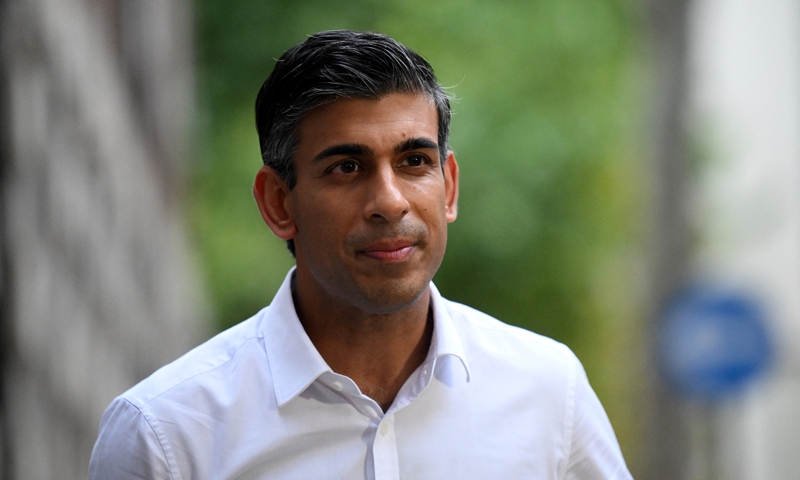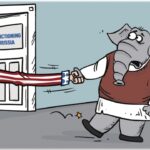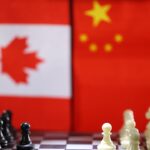The long-term pragmatic foreign policy desired by the government of UK Prime Minister Rishi Sunak may reduce the negative impact of the uncertainty on the British side in previous China-UK relations. However, if it cannot value China’s role comprehensively and objectively, such a plan may exacerbate tensions between China and Britain, experts warned, ahead of Sunak’s upcoming speech on British foreign policy on Monday.
According to the Guardian, Sunak will pledge an “evolutionary approach” to British foreign policy, arguing that states like Russia and China plan for the long term and the UK needs to follow suit, as he attempts to set out his vision for the country’s place on the global stage.
In his first major foreign policy speech since becoming prime minister, Sunak will draw on his years running the Treasury to say that the UK’s strength abroad must be underpinned by a strong economy at home as it stands up to competitors with “robust pragmatism,” the Guardian said.
The so-called long-term plan, experts say, is likely to be a more specific version of the Integrated Review put forward by the Boris Johnson government in 2021.
Observers say that if the UK can actually develop a detailed long-term foreign policy, it could help the country rid itself of the speculative and arbitrary nature of its current policies.
One of the biggest problems in British foreign policy in recent years is that it lacks systematic planning and long-term strategy, Cui Hongjian, director of the Department of European Studies at the China Institute of International Studies, told the Global Times on Monday.
The UK has been suffering a period of confusion after Brexit and has been caught up in some huge changes in the international situation, so its overall foreign policy is still in a state of crisis management, Cui said.
However, this so-called long-term policy should first solve the problem of how to value China’s role in its foreign policy, experts said.
Before taking office, Sunak had labelled China as the “biggest long term threat to Britain.” However, speaking to reporters during the G20 summit in Bali, the British prime minister softened his tone on Beijing, referring to China as “a systemic challenge.”
This indicates that under the Sunak government’s plan, relations with China are more likely to develop in the basic direction of “competitive when they should be, collaborative when they can be.”
According to the Guardian, Sunak will also talk about deepening partnerships in other parts of the world, such as the “Indo-Pacific region,” and preparing for the sharpening of inter-state competition with countries like Russia, China and Iran.
During his first month in office, Sunak has met international partners including US President Joe Biden and French President Emmanuel Macron, and has also travelled to Ukraine.
The Sunak government would be better off focusing on its diplomatic strategy on Europe or transatlantic relations, said Li Guanjie, a research fellow from the Shanghai Academy of Global Governance and Area Studies, under the Shanghai International Studies University.
In dealing with great power relations and the Indo-Pacific region, the best goal Britain can aim for is to maintain a balance, experts noted. It is not suitable for Britain to invest too much in the Indo-Pacific region, as it has neither sufficient ability nor influence to play the role of a third party in the region as smoothly as it used to.
If the Sunak government really wants to achieve “robust pragmatism,” it must stick to economic cooperation with China, Li said. The UK imported £63.6 billion ($66.6 billion) of goods from China in 2021, making up 13.3 percent of all its imports, and exported £18.8 billion of goods, 5.8 percent of all its exports. Increasing economic cooperation with China is in the interests of both sides and the Sunak government should be well aware of that.
If Britain wants to appear to have a foreign policy of its own, it should focus more on its own interests rather than being held hostage to some countries’ strategic goals, Cui said.
(Global Times)




